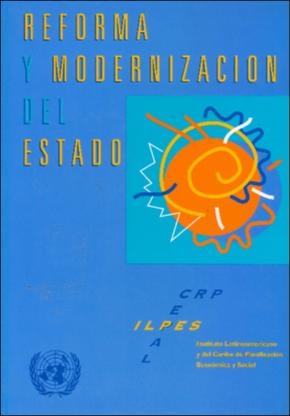Planning for development in the 60 years of ILPES
The 1990s (1990-2000): The strategic management of the State
As a further extension of the adjustment programs, the state reform processes occurring in Latin America and the Caribbean responded to a criterion of "less state." Throughout the region concurrent processes of decentralization, privatization, deregulation, and outsourcing to the private sector were promoted. As in other periods, the substantive areas of ILPES during the period accompanied the countries in these processes under the auspices of ECLAC, whose iconic publications Sustainable development: changing production patterns, social equity and the environment (1991) and Changing production patterns with social equity (1996) marked thinking on development throughout the decade.
During the decades of the decline in planning (1980s and 1990s), ILPES with ECLAC, maintained its discourse on the importance of the role of the State and promoted the adoption of strategic planning and public management approaches to support country efforts to improve macroeconomic balances. In parallel and at the microeconomic level, ILPES fostered methodologies for evaluation; regional policies and planning; strategic development planning at the local level; fiscal and administrative decentralization and the new structures of the State for these purposes; as well as in privatization, outsourcing and the new public investment systems and processes that supported these fundamental changes in State structures. Towards the end of the 1990s, the Institute began its research in prospective studies, aimed at helping countries begin to plan for future development. And finally, vis-à-vis the problems associated with globalization and competitiveness, the Institute’s work debated its impacts on territorial space and the role of endogenous development and territorial competitiveness as strategies to address these challenges.
Featured publications
-
 La dimensión espacial en el imperativo de la innovación
by
Call Number: LC/IP/G.57Publication Date: 1991
La dimensión espacial en el imperativo de la innovación
by
Call Number: LC/IP/G.57Publication Date: 1991 -
 Modelos macroeconométricos en países de América Latina: principales características y ejemplos de simulaciones
by
Call Number: LC/IP/R.88Publication Date: 1991
Modelos macroeconométricos en países de América Latina: principales características y ejemplos de simulaciones
by
Call Number: LC/IP/R.88Publication Date: 1991 -
 Papel de los organismos nacionales de planificación en una gestión estratégica del desarrollo
by
Call Number: LC/IP/R.93Publication Date: 1991
Papel de los organismos nacionales de planificación en una gestión estratégica del desarrollo
by
Call Number: LC/IP/R.93Publication Date: 1991 -
-
 Los nuevos retos en la programación del sector público
by
Call Number: LC/IP/L.52Publication Date: 1992
Los nuevos retos en la programación del sector público
by
Call Number: LC/IP/L.52Publication Date: 1992 -
 La descentralización: el eslabón perdido de la cadena transformación productiva con equidad y sustentabilidad
by
Call Number: LC/IP/G.62-PPublication Date: 1992
La descentralización: el eslabón perdido de la cadena transformación productiva con equidad y sustentabilidad
by
Call Number: LC/IP/G.62-PPublication Date: 1992 -
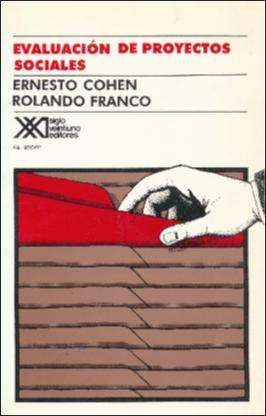 Evaluación de proyectos sociales
by
Publication Date: 1992
Evaluación de proyectos sociales
by
Publication Date: 1992 -
 El régimen jurídico de la planificación en América Latina
by
Call Number: LC/IP/G.64-PPublication Date: 1993
El régimen jurídico de la planificación en América Latina
by
Call Number: LC/IP/G.64-PPublication Date: 1993
-
 Manual de identificación, preparación y evaluación de proyectos
by
Call Number: LC/IP/G.70-PPublication Date: 1993
Manual de identificación, preparación y evaluación de proyectos
by
Call Number: LC/IP/G.70-PPublication Date: 1993 -
 La administración de la inversión pública: marco teórico y su aplicación
by
Call Number: LC/IP/G.72-PPublication Date: 1994
La administración de la inversión pública: marco teórico y su aplicación
by
Call Number: LC/IP/G.72-PPublication Date: 1994 -
 Competitividad internacional, estrategia empresarial y papel de las regiones
by
Call Number: LC/IP/G.85Publication Date: 1995
Competitividad internacional, estrategia empresarial y papel de las regiones
by
Call Number: LC/IP/G.85Publication Date: 1995 -
 Privatizaciones: panorámica de un tema de actualidad
by
Call Number: LC/IP/R.153Publication Date: 1995
Privatizaciones: panorámica de un tema de actualidad
by
Call Number: LC/IP/R.153Publication Date: 1995 -
-
-
 Los estudios del futuro y la prospectiva: claves para la construcción social de las regiones
by
Call Number: LC/IP/G.95Publication Date: 1996
Los estudios del futuro y la prospectiva: claves para la construcción social de las regiones
by
Call Number: LC/IP/G.95Publication Date: 1996 -
-
 El proceso de construcción social del territorio para el desarrollo económico local
by
Call Number: LC/IP/R.180Publication Date: 1997
El proceso de construcción social del territorio para el desarrollo económico local
by
Call Number: LC/IP/R.180Publication Date: 1997
-
 Planificación estratégica municipal y desarrollo local
by
Call Number: LC/IP/R.189Publication Date: 1997
Planificación estratégica municipal y desarrollo local
by
Call Number: LC/IP/R.189Publication Date: 1997 -
 Prospectiva y estrategia: compendio de trabajos presentados en el Primer Encuentro de Estudios Prospectivos
by
Call Number: LC/IP/L.134Publication Date: 1997
Prospectiva y estrategia: compendio de trabajos presentados en el Primer Encuentro de Estudios Prospectivos
by
Call Number: LC/IP/L.134Publication Date: 1997 -
 Municipalización: ¿política de Estado o práctica de gobierno?
by
Call Number: LC/IP/R.198Publication Date: 1997
Municipalización: ¿política de Estado o práctica de gobierno?
by
Call Number: LC/IP/R.198Publication Date: 1997 -
 Guía para la identificación, preparación y evaluación de programas sociales
by
Call Number: LC/IP/L.143Publication Date: 1998
Guía para la identificación, preparación y evaluación de programas sociales
by
Call Number: LC/IP/L.143Publication Date: 1998 -
 Sistemas integrados de administración financiera pública en América Latina
by
Call Number: LC/IP/L.156Publication Date: 1999
Sistemas integrados de administración financiera pública en América Latina
by
Call Number: LC/IP/L.156Publication Date: 1999 -
-
 Teorías y metáforas sobre desarrollo territorial
by
Call Number: Libros de la CEPAL 49 - LC/G.2030-PPublication Date: 1999
Teorías y metáforas sobre desarrollo territorial
by
Call Number: Libros de la CEPAL 49 - LC/G.2030-PPublication Date: 1999 -
A selection of seminars (1990s)
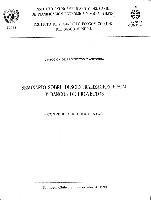
Seminario sobre Descentralización Fiscal y Bancos de Proyectos: compendio de documentos / CEPAL-ILPES | BIRF-Economic Development Institute (1991)
Seminar on Fiscal Decentralization and Project Banks, 2-5 October 1990. (LC/IP/L.33)

El presupuesto frente a los nuevos retos de la planificación y coordinación de políticas públicas: informe final / CEPAL-ILPES (1992)
Seminar on Public Budgets and Strategic Management of the State No. 1, Mexico City, 27-30 August 1991. (LC/IP/G.65)
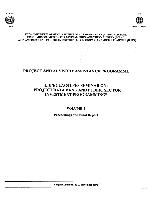
Seminar on “Project Data Bank and Public Sector Investment Programming / BIRF-EDI / ECLAC-ILPES (1991)
Seminar in Kingston, Jamaica, 22 – 24 November 1991
Four volume compendium (Volume I: Proceedings and Final Report; Volume II: List of Selected National Papers; Volume III: List of Selected Institutional Papers; Volume IV: Manuel for Project Identification, Formulation and Appraisal.
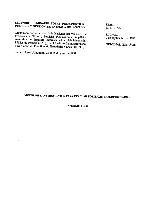
Modelos e instrumentos para evaluar políticas presupuestarias: informe final (1993)
Second Seminar on Public Budgets and Strategic Management of the State, Buenos Aires, 23-26 June 1992, Finance Secretariat of the Ministry of Economy, Public Works and Services of Argentina, the International Institute of Public Administration of France and ILPES. Sponsored by the Inter-American and Iberian Association of Public Budget (ASIP) and the Argentine Association of Public Budget (ASAP). (LC/IP/G.71)
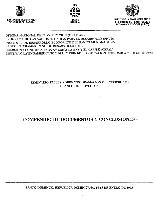
Seminario-Taller sobre Programación de Inversiones y Banco de Proyectos: compendio de documentos y conclusiones (1993)
Seminar organized by ONAPLAN, IDE, UNDP, ECLAC and ILPES, held in Santo Domingo, Dominican Republic, 14-15 January 1993. (LC/IP/L.76)

Partidos políticos y gestión estratégica (1997)
International Seminar "Political Parties and Strategic Management of the State" in Brasilia, Brazil, 28-29 November 1997, organized jointly with the Government of Brazil, the Government of Italy, the Government of Brazil, and the Government of Italy. (LC/IP/L.135)


